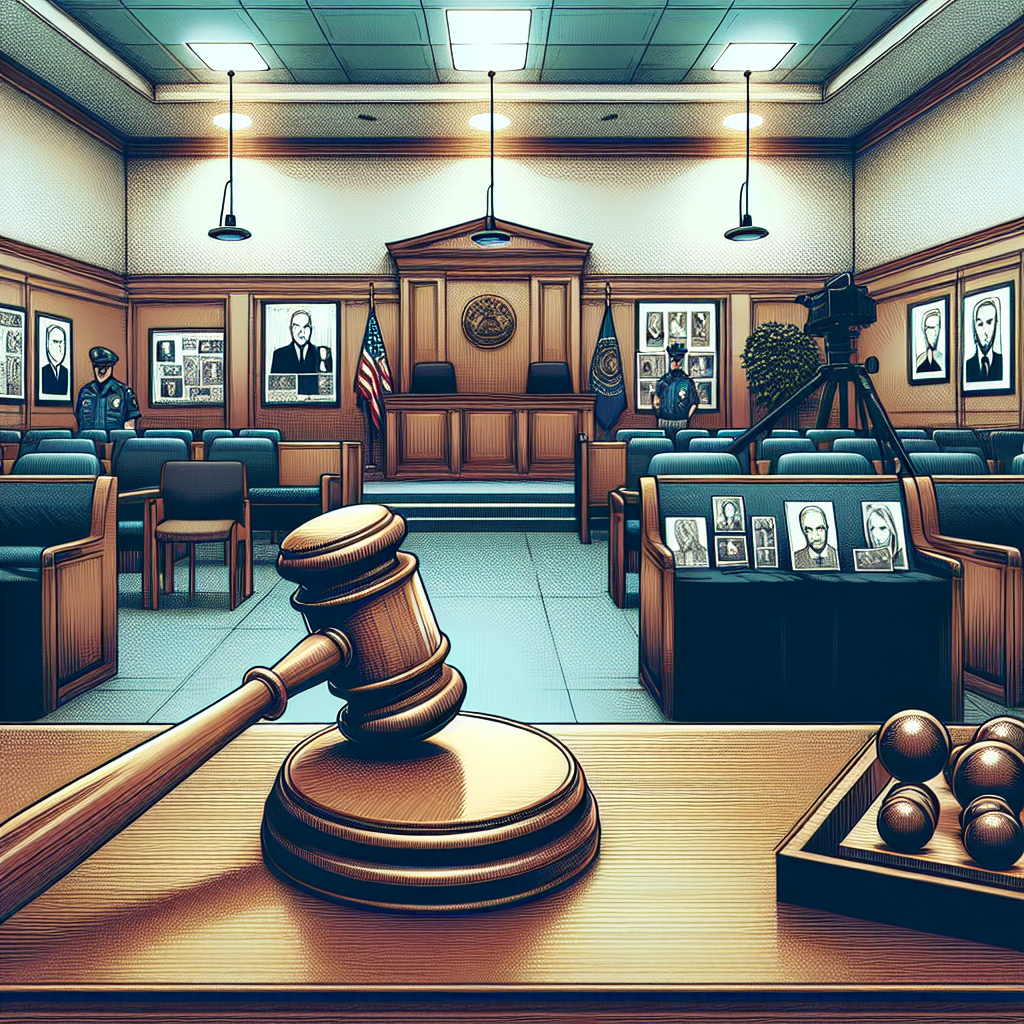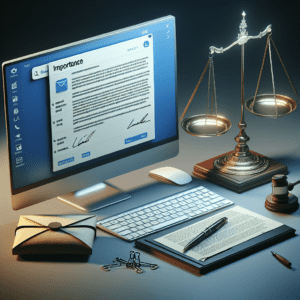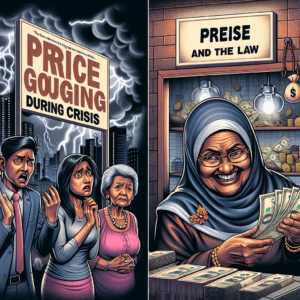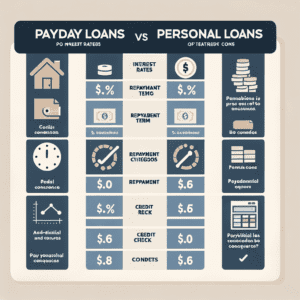“Unmasking the Most Shocking Crimes of the Year – The Truth, The Trials, The Aftermath.”
The Most Shocking Criminal Cases of the Year – Unraveling the Truth Behind the Headlines
The past year has seen a series of shocking criminal cases that have captured public attention, sparking intense debates and widespread media coverage. These cases, ranging from high-profile murders to complex financial frauds, have not only exposed the darker side of human nature but also raised critical questions about justice, law enforcement, and the legal system. As the details of these cases continue to unfold, the public remains eager to understand the truth behind the headlines and what the future holds for those involved.
One of the most disturbing cases involved a high-profile individual accused of orchestrating a violent crime that left an entire community in shock. The investigation revealed a web of deceit, hidden motives, and a carefully planned act that defied initial assumptions. As law enforcement officials meticulously pieced together the evidence, the case took unexpected turns, leading to a dramatic courtroom battle. The prosecution presented compelling arguments, while the defense sought to challenge the credibility of key witnesses. Ultimately, the verdict sent a strong message about accountability, but the case also highlighted the complexities of the legal process and the challenges of ensuring a fair trial.
In another case that dominated headlines, a financial scandal involving a well-known corporation exposed widespread corruption and fraudulent activities. Investors and employees alike were left reeling as investigators uncovered a scheme that had been operating undetected for years. The case not only led to criminal charges against top executives but also prompted regulatory agencies to reevaluate existing oversight mechanisms. As the legal proceedings continue, questions remain about the extent of the damage and whether those affected will receive justice. This case serves as a stark reminder of the consequences of corporate misconduct and the need for greater transparency in financial institutions.
Meanwhile, a case involving a missing person took a tragic turn when new evidence emerged, leading to the arrest of a suspect with a troubling past. The investigation, which initially seemed to have reached a dead end, was reignited by advancements in forensic technology and the persistence of law enforcement officials. As the trial progresses, the victim’s family and the public await answers, hoping for closure after years of uncertainty. This case underscores the importance of continued efforts in forensic science and the role of public awareness in solving long-standing mysteries.
Beyond these individual cases, the broader implications of such crimes cannot be ignored. Each case has sparked discussions about systemic issues, from the effectiveness of law enforcement strategies to the ethical responsibilities of corporations and individuals. Moreover, the role of media coverage in shaping public perception has been a topic of debate, as sensationalized reporting can sometimes overshadow the facts. While these cases have shocked the public, they have also reinforced the need for vigilance, legal reforms, and a commitment to justice.
As these cases move through the legal system, the outcomes will have lasting effects on both the individuals involved and society as a whole. Whether through convictions, policy changes, or increased awareness, each case contributes to an ongoing dialogue about crime, justice, and accountability. While the headlines may eventually fade, the lessons learned from these shocking events will continue to shape the legal landscape for years to come.
High-Profile Trials and Verdicts – What Happens Next in These Shocking Criminal Cases

The past year has seen several high-profile criminal cases that have captured public attention, sparking intense debates and discussions about justice, accountability, and the legal system. As these cases unfold, the outcomes of the trials and the subsequent legal proceedings continue to shape public perception and influence future legal decisions. With verdicts now delivered in some of the most shocking cases, the focus shifts to what happens next—whether through appeals, sentencing, or broader implications for the justice system.
One of the most widely followed cases involved a high-profile public figure accused of financial fraud and corruption. After months of testimony and extensive evidence presented by both the prosecution and defense, the jury reached a guilty verdict. While the conviction marked a significant moment in the case, the legal battle is far from over. The defense has already signaled its intention to appeal, citing alleged procedural errors and claims of judicial bias. If the appeal is granted, the case could be retried or the sentence reduced, prolonging the legal process and leaving many questions unanswered. Meanwhile, the convicted individual remains in custody, awaiting sentencing, which could result in a lengthy prison term or, depending on mitigating factors, a more lenient punishment.
Another case that drew national attention involved a violent crime that shocked the public due to its brutality and the high-profile nature of those involved. The trial was marked by emotional testimony, forensic evidence, and intense media scrutiny. Ultimately, the jury found the defendant guilty on multiple counts, leading to a swift sentencing phase. However, legal experts suggest that post-trial motions and potential appeals could delay the final resolution. In cases of this magnitude, defense attorneys often explore every possible legal avenue to challenge the verdict, whether by questioning the admissibility of evidence or arguing for a mistrial based on jury misconduct. As a result, while the initial verdict may seem conclusive, the legal process remains ongoing, with the possibility of further developments in the months or even years ahead.
In addition to individual cases, some trials have broader implications for the legal system and public policy. For instance, a recent case involving allegations of police misconduct and excessive force has reignited debates about law enforcement accountability. The trial resulted in a conviction, but the case has prompted calls for legislative reforms and changes in policing practices. Advocacy groups and legal experts are now pushing for policy changes that could prevent similar incidents in the future. Meanwhile, the convicted officer is expected to appeal the decision, arguing that the trial was influenced by public pressure and media coverage. The outcome of this appeal could set a precedent for future cases involving law enforcement, making it a critical moment in the ongoing discussion about justice and accountability.
As these high-profile cases continue to unfold, the legal system remains under intense scrutiny. The appeals process, sentencing decisions, and potential retrials will determine the final outcomes, but the impact of these cases extends beyond the courtroom. They shape public discourse, influence legal reforms, and serve as reminders of the complexities of the justice system. While some may see these verdicts as a step toward justice, others remain skeptical, highlighting the challenges of ensuring fairness and impartiality in high-stakes trials. Regardless of the final outcomes, these cases will leave a lasting mark on the legal landscape, shaping future discussions about crime, punishment, and the pursuit of justice.
Justice Served or Denied? The Aftermath of the Year’s Most Shocking Criminal Cases
The conclusion of high-profile criminal cases often leaves the public divided, with some believing that justice has been served while others argue that the legal system has failed. This year, several shocking cases have captured national and international attention, sparking debates about the effectiveness of the justice system and the consequences for those involved. As the dust settles, the aftermath of these cases continues to unfold, raising important questions about accountability, sentencing, and the broader implications for society.
One of the most talked-about cases involved a high-profile corporate executive accused of orchestrating a massive financial fraud scheme. The trial revealed years of deception, with thousands of victims suffering significant financial losses. While the court ultimately handed down a lengthy prison sentence, many victims felt that justice was only partially served, as much of the stolen money was never recovered. This case reignited discussions about corporate accountability and whether existing laws are sufficient to deter such crimes in the future.
Similarly, a highly publicized murder trial involving a well-known public figure shocked the nation. The case, which centered on overwhelming forensic evidence and witness testimony, resulted in a guilty verdict. However, the sentencing phase sparked controversy, with some arguing that the punishment was too lenient given the severity of the crime. The victim’s family expressed disappointment, stating that no sentence could truly compensate for their loss. Meanwhile, legal experts debated whether sentencing guidelines should be re-evaluated to ensure that punishments more accurately reflect the gravity of violent offenses.
In another case, a wrongful conviction that had stood for decades was finally overturned after new DNA evidence emerged. The individual, who had spent most of their life behind bars for a crime they did not commit, was exonerated and released. While this outcome was a victory for justice, it also highlighted the flaws in the legal system that allowed such an injustice to occur in the first place. The case reignited discussions about the reliability of eyewitness testimony, the need for improved forensic techniques, and the importance of reviewing past convictions to prevent similar miscarriages of justice.
Meanwhile, a case involving police misconduct led to widespread protests and calls for reform. The trial, which centered on the excessive use of force, resulted in a conviction, but the sentencing was met with mixed reactions. Some viewed it as a step toward accountability, while others felt that systemic issues within law enforcement remained unaddressed. The case prompted renewed discussions about police training, oversight, and the need for policy changes to prevent future incidents of misconduct.
As these cases demonstrate, the legal system plays a crucial role in determining accountability, but its outcomes do not always satisfy public expectations. While some verdicts and sentences provide a sense of closure, others leave lingering doubts about whether justice was truly served. Moving forward, these cases serve as reminders of the complexities of the legal process and the ongoing need for reforms to ensure fairness and accountability. Whether through changes in legislation, improvements in forensic science, or increased oversight, the pursuit of justice remains an evolving challenge that requires constant vigilance and adaptation.
















